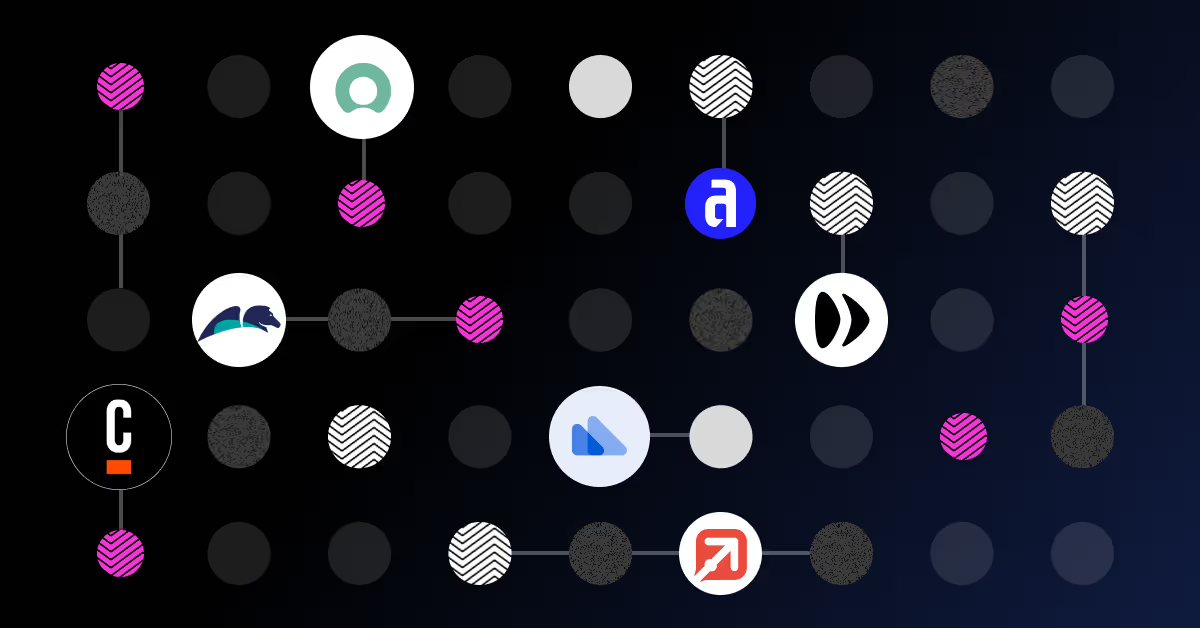5 of the biggest operational challenges leaders face in 2026

IT and operational leaders are facing a litany of challenges in a world grappling with economic uncertainties, booming technology and inflationary pressures. The looming shadow of a global recession and the ongoing struggle to find the right talent further complicate the scenario. This blog delves into some of the critical operational challenges that business leaders are poised to confront in the years ahead.
Challenge 1: Artificial Intelligence
The massive potential of Artificial Intelligence (AI) and generative AI to boost productivity has businesses eagerly attempting to integrate these technologies into their operations. However, this enthusiasm often lacks a strategic focus and understanding of how to identify the most suitable use cases. This risks AI being introduced in isolation, in a hasty attempt to “keep up”, an approach that weakens its effectiveness.
Instead of hastily adopting the latest AI technologies without a clear understanding of their practical applications, businesses should first pinpoint the problems they aim to solve, and how AI can be used in alignment with wider business goals. Consider a company burdened with processing vast volumes of documents. This task, when done manually, consumes significant time and resources. By employing Intelligent Document Processing, the process is automated, thereby reducing costs and optimizing resource utilization.
Businesses must also weigh the risks associated with new technologies. There are growing concerns about the behavior of generative AI systems, particularly when they fail to produce accurate responses, a phenomenon known as "artificial intelligence hallucination." This issue can lead to data corruption and undesirable outcomes.
Legal and ethical considerations are further threatening the widespread implementation of generative AI. Concerns around AI bias are one issue, as everything from tools used in recruitment to customer service must be monitored for fair and unbiased behaviour. Job displacement is another ethical concern, as new solutions reduce the need for some job roles, companies must consider ways to reduce the human impact by retraining in other areas.
For companies cautious about these tools, a prudent approach is to introduce them in low-risk areas. For instance, creative fields such as graphic design and copywriting are ideal for integrating generative AI, enhancing productivity while supporting human workers.
Looking forward, the wind is clearly blowing in the direction of Agentic AI. These tools are powered by LLM like ChatGPT and can perform more varied and complex tasks with little need for human involvement. While some companies are forging ahead with adopting these technologies, others are falling behind, held back by data issues, internal resistance, and a lack of alignment with business strategy. But the autonomous abilities of Agentic AI will bring great advantages in efficiency and decision making to those companies who use them wisely. So, as ChatGPT reaches its second birthday, the question for companies that are yet to take that leap is no longer if, but when?
Challenge 2: Digital transformation
The reality is that digital transformation is no longer optional. Businesses who don’t embrace this wave of change will find themselves left behind. However, even if you know what you want to do, often you don’t have the budget or talent in place to action your digital transformation strategy.
A lack of training and employee engagement can also often be a significant blocker to digital transformation, something that IT and operations leaders can only overcome with sufficient time investments in their teams. New technology and processes will always have a steep learning curve, so having the right knowledge in the organisation means being able to use the appropriate tools to your advantage. Employees must have buy-in to these new changes, alongside proper training on new technology and processes.
Budget and resource constraints are also a concern, which can be mitigated with an iterative approach to digital transformation. Using existing support teams, such as those usually focused on maintenance or routine operations, can help to support gradual changes. This allows changes to be rolled out at a steady pace, starting with high-priority areas, so budgets and resources are not overwhelmed and the project remains manageable and cost effective.
Digital transformation can also run into difficulties due to a rushed testing period. The bigger the project, the quicker stakeholders often want to see a return on investment. Also, the more important or the bigger the project, the greater the temptation to reveal it as quickly as possible in order to capitalise on outside interest as well as meeting operational challenges internally.
However, the rise of software-as-a-service presents an opportunity to address these challenges, with out of the box solutions that quickly improve operations and minimize risk. Using a combination of automation and AI, SaaS means there’s less reliance on human labour for routine tasks, producing instant value without compromising on quality. Many tools can integrate easily with existing systems, limiting the need for tricky customisation and lengthy testing periods. This provides a fast return on your investment and a secure route to optimum efficiency. For operational leaders, adopting SaaS early should be a priority, as it proves to be the future of digital transformation.
Read more: what is digital transformation?
Challenge 3: Talent Shortages
Monster's 2023 Watch Work Report revealed that 87% of employers struggle to find IT talent. In-demand roles like machine learning engineers, software developers and analysts have become even more sought-after with the rise of hybrid work environments and digital transformation, necessitating specialist skills. This supply and demand imbalance has escalated hiring costs and raised the standards for employee benefits packages. Amidst the ongoing cost of living crisis, finding the right talent while adhering to budget constraints presents a formidable challenge.
Alongside the ongoing demand for flexible work arrangements, recent data also suggests that there is an increasing demand for purpose-driven work, with over 85% of Millenials and Gen-Z indicating this is an important factor in their employment decisions. This shows that competitive wages and material benefits are no longer enough to attract top talent, as priorities among the working population shift.

Global factors are also impacting businesses' ability to recruit new talent, such as inflationary pressures and the ongoing recovery from the COVID-19 pandemic recession. This situation is aggravated as industries recognize the efficiency gains from integrating IT and engineering into their operations. However, the talent shortage slows the development and growth of digital platforms essential for competitive success, directly impacting a company's financial performance and increasing the demand for operational and IT resources.
Additionally, according to ManpowerGroup, 75% of organizations globally report challenges in filling roles.Talent availability is a critical factor inhibiting technology adoption across key domains, including AI,infrastructure, network, security, digital workplace, IT automation, and storage/database services, thus hindering operational progress. For AI this is set to be particularly difficult, as the demand for skilled AI professionals is predicted to far outstrip the supply of qualified talent.
Meanwhile, there is an increasing shift towards using AI tools in recruitment. These solutions are able to automate and assist in every stage of the recruitment process, including advertising vacancies, screening applications, ongoing communication, and initial interview stages. This can transform the whole process, making it smoother and more engaging for applicants, giving businesses who use these tools an edge in a highly competitive market.
Challenge 4: Economic challenges
In the UK, median forecasts for 2025 predicted an average inflation rate of 2.6%, with the Bank of England projecting economic growth of 1.5% in 2024. While these figures are an improvement from the height of the cost of living crisis, they still fall short of the targets that create ideal economic conditions. For businesses, this translates into doing more with less. Rising talent costs, supply chain issues, and the imperative of digital transformation compound these challenges.
Continuing inflation and geopolitical tensions are producing an uncertain economic environment that puts pressure on companies to remain adaptable. In this situation, every investment has to count. Unpredictable costs require contingency planning and the fluctuating availability of materials demands supply chain resilience, which can be built through diversifying suppliers and adopting new technologies.
Operational leaders must explore ways to streamline or automate internal processes to enhance efficiency and increase team capacity. During budget constraints, companies might suspend support for new projects like digital transformation or impose hiring freezes until the recession's impact diminishes. The challenge for operational leaders is to sustain their commitment to driving positive transformation while navigating these macroeconomic factors.
Operational leaders must handle concerns like changing customer expectations and rising wages, while remaining efficient and cost effective, requiring a tricky balancing act between short term needs and long term goals.
Challenge 5: Visibility
Given these challenges, it's crucial for operational leaders to maintain visibility over their processes to identify bottlenecks, allocate resources effectively, and enhance the customer experience. However, reliance on outdated legacy systems and multiple platforms often obscures insights into strengths and weaknesses.
Compounding this issue is the risk of data overload. Businesses are ever more reliant upon data to make the right decisions and provide the service customers expect, but it can be difficult to gain meaning from the sheer volume of information. The challenge is to establish proper organization and the right tools to extract the information needed for clear visibility. Otherwise, you end up with conflicting understanding across departments and delayed decision making. Choosing centralized platforms that can automate data analysis is essential to handling this problem and making sure that an excess of information is an advantage, not a roadblock.
Complete visibility and a comprehensive view of operations are essential for impactful decision-making and addressing operational gaps. Companies frequently lose time determining accountability due to unclear communication lines across multiple channels and work streams.
A centralized platform for managing all work streams is increasingly vital. Such a system simplifies gaining actionable insights on metrics like average ticket completion time or customer satisfaction scores, thereby fostering more informed and efficient operations.
Enate's AI-powered workflows enable you to oversee, manage, and optimize workflows through a comprehensive, end-to-end solution, enhancing operational efficiency across the board. Discover how TMF improved margin by a whopping £32million using Enate.




